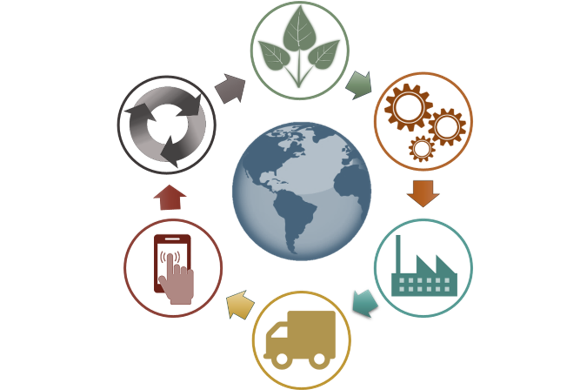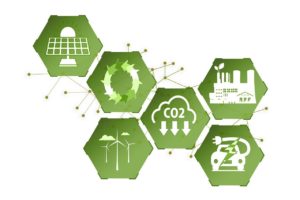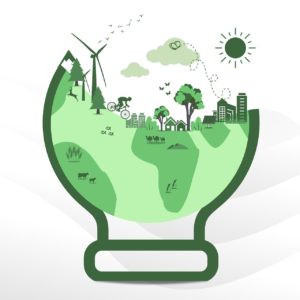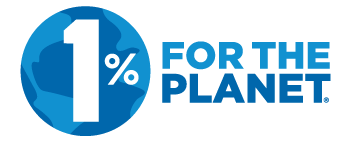Product Sustainability
Our extensive expertise in product sustainability can help you understand the benefits and impacts of your products, technologies, and services. Robust and credible environmental insights can inform your sustainability strategy, enhance design, support green marketing, improve your competitive positioning, reduce costs and risks, and encourage improved relationships across your value chain.
Aspire Sustainability strategically applies a life cycle perspective to understand the environmental impacts of products, technologies, and services. Our award-winning team has developed highly effective Life Cycle Assessment (LCA) and Carbon Footprint studies across a myriad of product and technology categories. We understand how to customize environmental assessments to address the range of products, technologies and service solutions specific to our individual clients’ needs.

invisible
Life Cycle Assessment (LCA) & Environmental Product Declarations
Life Cycle Assessment (LCA) is a standardized, science-based methodology to assess the environmental aspects and potential impacts of a product or service throughout its lifetime, including raw material extraction, transportation, manufacturing, use, and disposal. An LCA can be a valuable tool for evaluating challenging sustainability issues or for determining meaningful areas for improvement. This approach is typically used for products or technologies but can also be used for services or even whole companies. LCA can be the foundation for a marketing campaign, generating Environmental Product Declarations (EPDs), materials sustainability strategy, product differentiation, thought leadership, customer engagement, supply chain optimization, and regulatory compliance. We are award-winning, LCA Certified Professionals with in-depth LCA expertise in over 40 product and technology categories.
Carbon, Energy & Water Footprinting
Product Innovation: Eco-Design / Design for Environment (DfE)
Eco-design is an approach to the design and development of a product with special consideration for the environmental impacts of the product during its whole life cycle. It integrates environmental attributes with the aim of improving the environmental performance of the product while maintaining or improving its safety, reliability, and cost effectiveness. Examples include ideas such as introducing renewable, recyclable, and biodegradable materials into the product; designing for upgrade-ability, repair-ability, or durability; and integrating ease of disassembly and recycling into the design of the product. Whether extended producer responsibility (EPR), materials sustainability, circular economy, or supply chain optimization is your priority, we can help find the right solution.
invisible
Critical Review & Verification
Aspire Sustainability has the experience and credibility to support your third party critical review & verification efforts for Life Cycle Assessments, Carbon/Water Footprints, and Environmental Product Declarations. We are LCA Certified Professionals, formally trained in critical review, and have in-depth LCA & technology expertise in a myriad of product and technology categories. We also have formal partnerships with many program operators and verification bodies. We have fresh enthusiasm and perspectives that bring added value to the review process. We have conducted many 3rd-party reviewed LCA studies ourselves, and thus we have a very clear perspective on how to bring value to the process. Our critical review brochure further summarizes our range of LCA and technology expertise across a wide range of industry sectors including healthcare, power, lighting, water, transportation, renewable energy, aviation, appliances, remediation, advanced materials, additive manufacturing, and more.
Green Marketing & Eco-Labels
Communication Strategies
The results of a product life cycle assessment can be complex and technical. Aspire Sustainability has substantial experience effectively communicating LCA results to varied audiences, ranging from highly sophisticated and engaged stakeholders, to business executives or the general public. We often leverage a tiered communication strategy to provide just the right level of detail to each target audience. This ensures that key messages are highlighted and reinforced, while conveying the technical rigor behind the results.

invisible
Critical Review & Verification
Aspire Sustainability has the experience and credibility to support your third party critical review & verification efforts for Life Cycle Assessments, Carbon/Water Footprints, and Environmental Product Declarations (EPDs). We are LCA Certified Professionals, formally trained in critical review, and have in-depth LCA & technology expertise in over 40 product and technology categories. We also have formal partnerships with many program operators and verification bodies and are approved verifiers. We have fresh enthusiasm and perspectives that bring added value to the review process. We have conducted many 3rd-party reviewed LCA studies ourselves, and thus we have a very clear perspective on how to bring value to the process. Our critical review brochure further summarizes our range of LCA and technology expertise across a wide range of industry sectors including healthcare, power, lighting, water, transportation, renewable energy, aviation, appliances, remediation, advanced materials, additive manufacturing, and more.
Green Marketing & Eco-Labels
Communication Strategies
The results of a product life cycle assessment can be complex and technical. Aspire Sustainability has substantial experience effectively communicating LCA results to varied audiences, ranging from highly sophisticated and engaged stakeholders, to business executives or the general public. We often leverage a tiered communication strategy to provide just the right level of detail to each target audience. This ensures that key messages are highlighted and reinforced, while conveying the technical rigor behind the results.

Image courtesy ecolife.zone
invisible
Circular Economy
A circular economy is an alternative to a traditional linear economy (make, use, dispose), in which we strive to keep resources in use for as long as possible, extract the maximum value from them while in use, then recover and regenerate products and materials at the end of each service life. A circular economy is restorative and regenerative by design. We can advise and support your efforts to create new business models, identify opportunities and risks around materials and end of life recovery options (reuse/re-design/recycling), and incorporate eco-design elements into your product sustainability strategy.
Materials Sustainability
Packaging Optimization
Packaging is a universal and challenging topic across sectors, geographies, and products. It is critical for marketing and brand recognition, protecting goods during distribution, and houses materials and parts entering your facilities. Packaging also creates challenges for facility managers, retail operations, and consumers in the form of cost and time for disposal. We can bring big-picture thinking to solve these challenges. From reducing packaging materials and associated wastes to eco-designing more sustainable packaging options, we are here to help.
A Life Cycle Assessment can be a valuable tool for evaluating challenging sustainability issues or for determining meaningful areas for improvement. This approach can be used for products, technologies, and services as well as whole companies. Here are some helpful examples of when a LCA should be conducted:
When a Customer...
- asks for LCA or carbon footprint data as part of a sustainability program
- requires an LCA or carbon footprint as part of a bid or proposal
When a Competitor...
- is using LCA or carbon footprint to market a “green” product
- is NOT using LCA or carbon footprint and you have an opportunity to improve your market position
When your product development team...
- plans to use Design for Environment (DfE) tools (LCA can provide the quantitative ‘roadmap’ for DfE efforts)
When your current product...
- contains toxics, heavy metals, rare earth minerals, or other substances of concern
- has environmental issues, benefits, or tradeoffs that need to be quantified and communicated
- mitigates environmental issues and you want to convey the benefit
- requires complex environmental messaging
When your company...
- has an opportunity to exert sustainability thought leadership at the customer or industry-wide level
- has set goals and metrics to advance the values and sustainability of the organization



